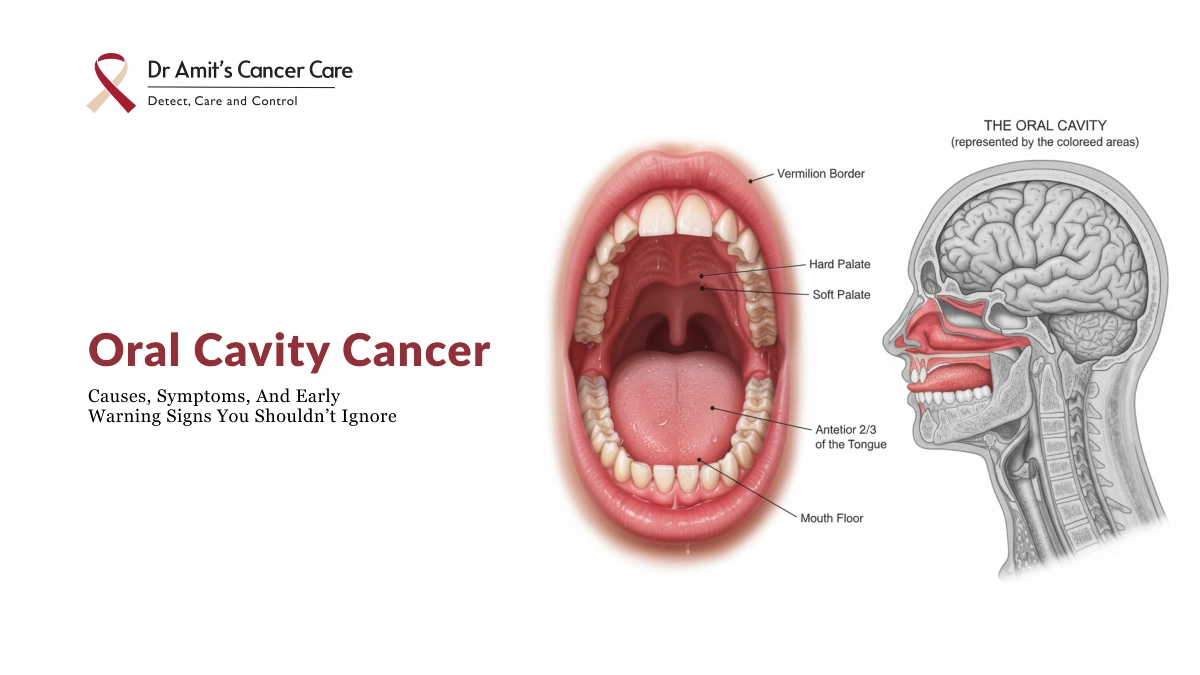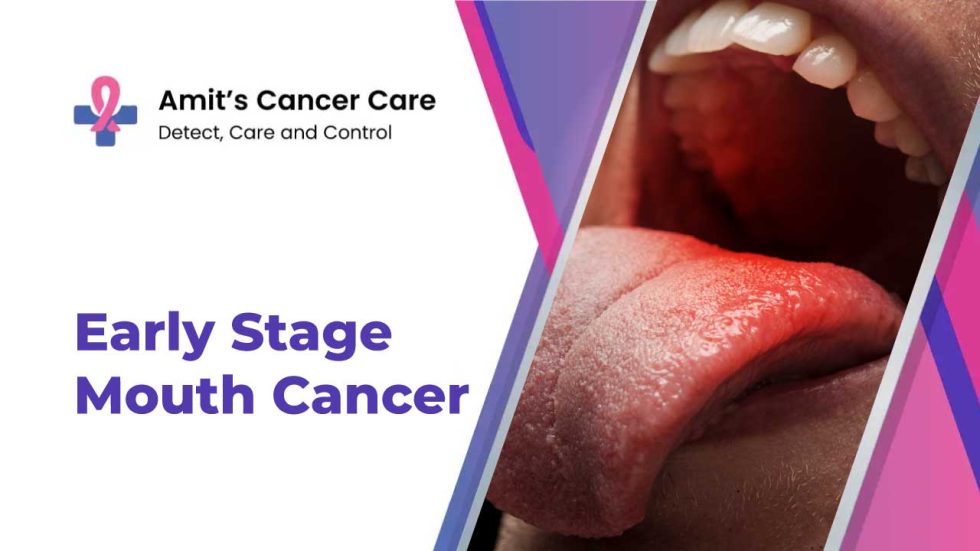Welcome to our comprehensive guide on tongue cancer stages and treatment, specifically tailored for patients in India. If you or someone you know has been diagnosed with tongue cancer, it’s essential to understand the different stages of the disease and the available treatment options.
We will delve into the details of tongue cancer, its staging process, signs and symptoms at each stage, diagnosis and treatment approaches, prognosis, and survival rates.
We aim to provide practical, usable, and compelling information to empower you to make informed decisions about your treatment journey.
What is Tongue Cancer?
Tongue cancer is a type of oral cancer that originates in the cells of the tongue. It affects people of all ages but is more commonly diagnosed in individuals over 40.
The main risk factors for developing tongue cancer include tobacco use, heavy alcohol consumption, a history of human papillomavirus (HPV) infection, and poor oral hygiene.
It’s important to note that tongue cancer can significantly impact an individual’s health and quality of life, making early detection and timely treatment crucial for better long-term outcomes.
Staging of Tongue Cancer
Tongue cancer is typically staged using the TNM system, which stands for Tumor, Node, and Metastasis.
This staging system helps tongue cancer doctors determine the extent of the disease and plan appropriate treatment strategies.
The stages of tongue cancer range from Stage 0 to Stage IV, with each stage reflecting the size and spread of the tumor.
During the staging process, doctors evaluate the size of the tumor, the involvement of nearby lymph nodes, and whether the cancer has spread to other parts of the body.
Understanding the stage of tongue cancer is essential because it impacts treatment decisions and provides valuable information about the prognosis.
By categorizing the disease into stages, doctors can tailor treatment plans to address each patient’s specific needs.
Signs and Symptoms at Different Stages
The signs and symptoms of tongue cancer can vary depending on the stage of the disease. In the early stages, individuals may experience persistent mouth ulcers or sores that do not heal, pain or difficulty swallowing, and a persistent sore throat.
As cancer progresses, additional symptoms may include a lump or thickening in the tongue, changes in speech or voice, numbness or loss of sensation in the tongue, weight loss, and unexplained bleeding.
Pay attention to these symptoms and seek medical attention if they persist for over two weeks. Early detection and timely treatment can significantly improve the chances of successful treatment and better outcomes.
Diagnosis and Staging Process
Doctors employ various diagnostic procedures to diagnose tongue cancer and determine its stage.
These may include physical examinations, imaging tests such as CT scans and MRI scans, biopsies, and, in some cases, PET scans.
These tests help doctors evaluate the size and location of the tumor, assess lymph node involvement, and check for the presence of metastases.
Accurate staging is crucial to determine the appropriate treatment approach. It allows doctors to create a personalized treatment plan tailored to each patient’s needs.
Tongue Cancer Doctors can make informed decisions about the most effective treatment options through an accurate diagnosis and staging process.
Treatment Options for Tongue Cancer
The treatment of tongue cancer depends on various factors, including the stage and location of the tumor, the overall health of the patient, and their personal preferences.
The primary treatment modalities for tongue cancer include surgery, radiation therapy, chemotherapy, targeted therapy, and immunotherapy.
A combination of these treatment approaches may be used to achieve the best possible outcome.
Surgery is often the primary treatment for early-stage tongue cancer. It involves the removal of the tumor and possibly nearby lymph nodes. In some cases, reconstructive surgery may be performed to restore speech and swallowing functions.
Radiation therapy uses high-energy beams to destroy cancer cells. It is often used in combination with surgery or as the primary treatment for early-stage tongue cancer.
Chemotherapy involves the use of drugs to kill cancer cells. Depending on the specific situation, it may be used before or after surgery and radiation therapy.
Targeted therapy and immunotherapy are newer treatment options, specifically targeting cancer cells or boosting the body’s immune system to fight the disease.
These therapies are still being studied and may be used in some instances or as part of clinical trials.
Treatment choice depends on the individual patient’s situation and requires careful consideration by a multidisciplinary team of Tongue Cancer Surgeons in Mumbai, including surgical oncologists, radiation oncologists, medical oncologists, and other specialists.
Treatment Approaches for Different Stages
The treatment approach for tongue cancer varies depending on the stage of the disease. Here is an overview of the treatment approaches for each stage:
Stage 0: In this stage, when the cancer is limited to the tongue’s surface, treatment options may include surgery to remove the tumor or laser therapy to destroy the abnormal cells.
Stage I and II: For small tumors that have not spread to nearby lymph nodes, surgery is often the primary treatment. This may involve partial or total removal of the tongue. In some cases, radiation therapy may be used as an alternative or combined with surgery.
Stage III and IV: Advanced-stage tongue cancer may require more aggressive treatment approaches. Surgery to remove the tumor and neck dissection to remove affected lymph nodes are often recommended. Radiation therapy and chemotherapy may also be used before or after surgery to increase the chances of a successful outcome.
It’s important to note that each patient’s treatment plan will be tailored to their needs and may differ from these general guidelines. It is essential to consult with a Tongue Cancer Surgeon in Mumbai to determine the most appropriate treatment approach for your case.
Prognosis and Survival Rates
The prognosis for tongue cancer varies depending on the stage at diagnosis, the patient’s overall health, and the chosen treatment’s effectiveness.
Early detection and treatment are associated with better outcomes. According to the American Cancer Society, the five-year survival rate for localized tongue cancer (Stage I) is around 78%, decreasing to approximately 63% for regional tongue cancer (Stage III).
It’s important to remember that survival rates are statistical estimates based on large groups of patients and may not reflect individual outcomes.
It’s crucial to remain optimistic, follow the prescribed treatment plan, and maintain regular follow-up appointments with your oncologist.
Conclusion
Understanding the stages and treatment options for tongue cancer is essential for patients and their families. Knowing the signs and symptoms, seeking an early diagnosis, and exploring appropriate treatment approaches can increase your chances of successful treatment and improved outcomes.
Remember to consult an Dr. Amit Chakraborty an expert Tongue Cancer Doctor in Mumbai for personalized advice and guidance tailored to your situation. Stay informed, stay positive, and reach out for support when needed. You are not alone in this fight against tongue cancer.






